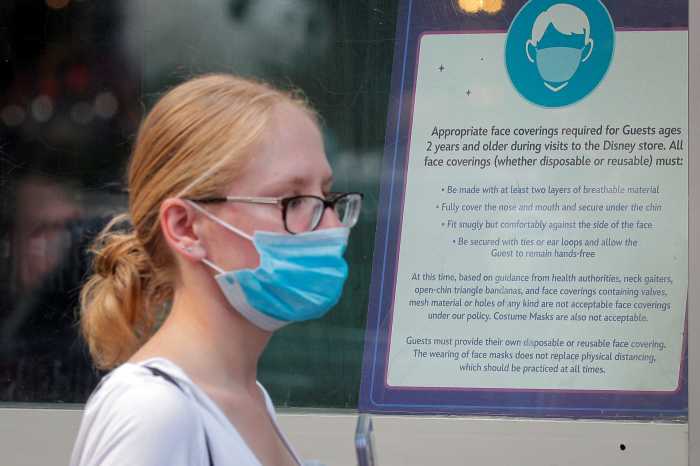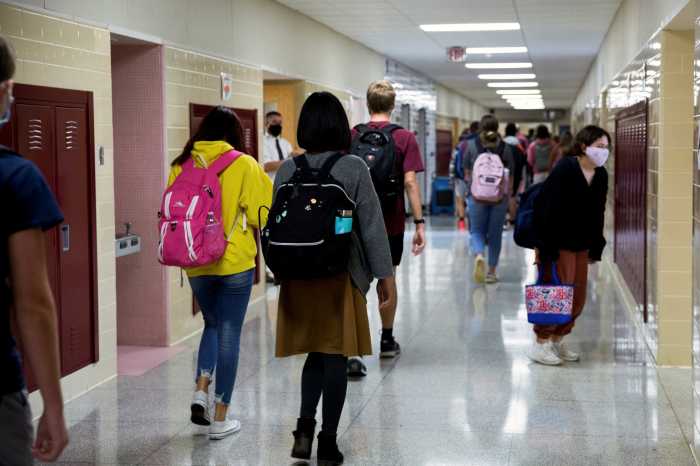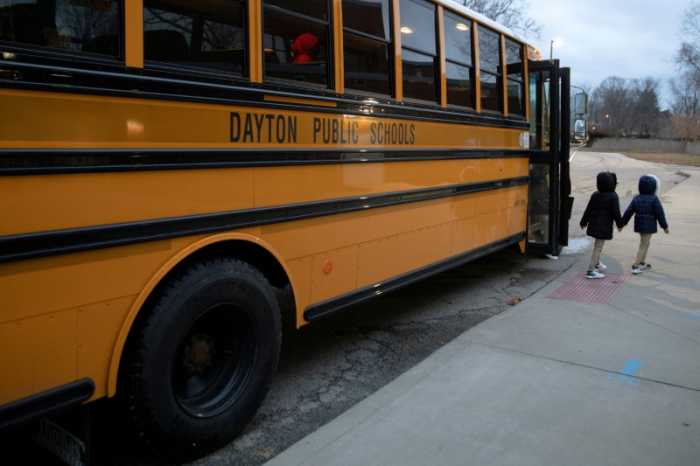Philadelphia lifted its indoor mask mandate Wednesday for businesses and other venues, joining cities and states around the country in loosening coronavirus restrictions.
Students, teachers and other school staff will be permitted to go maskless next Wednesday, March 9, as long as COVID-19 case rates and hospitalizations continue trending downward, city officials said.
The action from Mayor Jim Kenney’s administration came a day after President Joe Biden’s maskless State of the Union address and several days after new federal masking guidelines appeared to conflict with the city’s standards.
Masks must still be worn while riding public transportation and at Philadelphia International Airport, as well in hospitals, nursing homes and other healthcare settings. Private businesses can also choose to enforce mask-wearing.
In mid-February, as Philadelphia pulled back its vaccination requirement for indoor dining, the city’s Department of Public Health established a tiered system tied to pandemic metrics that would allow for the end of the mask mandate.
Those guidelines were more restrictive than levels unveiled last week by the U.S. Centers for Disease Control and Prevention, which held that a majority of Americans, including Philadelphians, could safely ditch facial coverings in most settings.
Philadelphia Health Commissioner Cheryl Bettigole conceded that the CDC recommendations sparked questions about the city’s approach.
“While we agree with the CDC’s concept of response levels and the use of transparent metrics, the specific metrics they’re suggesting feel risky for Philadelphia,” she said during a virtual press briefing Wednesday.
Bettigole, even while lifting the mandate, maintained that Philadelphia has unique circumstances as the poorest large city in the nation.
Nonetheless, the city was able to qualify for the health department’s “All Clear” phase after shuffling around data related to COVID-19 test positivity rates.
Previously, the department had been calculating the metric using only PCR tests, Bettigole said, not taking into account the rapid at-home tests that have become so ubiquitous at this stage of the pandemic.
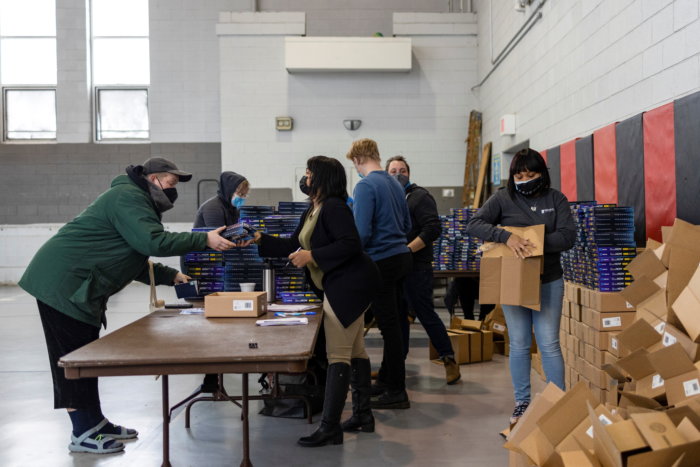
Using rapid antigen test numbers, Philadelphia’s positive test rate came to 1.7%, she added, under the 2% “All Clear” threshold.
Other health department standards related to case counts had already been met. The city is currently averaging 86 new infections a day, and 156 people with COVID-19 are hospitalized.
“In the last two weeks, the COVID situation across the country and in our region has changed dramatically,” Bettigole told reporters.
The School District of Philadelphia is planning to drop its masking requirement next Wednesday, spokesperson Monica Lewis confirmed to Metro on Wednesday. She said a federal rule means a mask mandate will remain in effect for those in the Head Start pre-kindergarten program.
For Catholic schools, the Archdiocese of Philadelphia’s goal “is to have all of our schools go mask optional as soon as it is permitted,” spokesman Ken Gavin said in an email. The archdiocese ended its mask requirement for suburban schools on Monday.
Schools have been told to institute a five-day mask mandate for the week following spring break to prevent viral spread from traveling and family gatherings. Public schools will return from spring break on April 18.
Masks will be optional, except for unvaccinated employees, inside City Hall and other municipal buildings beginning Monday.
In addition, Philadelphia’s State Road jail complex will resume in-person visits with fully vaccinated inmates starting next week after suspending such meetings in January.
Representatives from the Wells Fargo Center said Wednesday morning that masks would be optional for that night’s Sixers game, the highly-anticipated home debut of star guard James Harden.
Bettigole cautioned that health officials would remain on high alert, tracking the pandemic and reimplementing restrictions if necessary.
“I’m very hesitant to say (the pandemic) is over,” she said. “What we’re saying today is right now we are in a much safer space than we were a few months ago, even a few weeks ago.”
“And so we no longer need to require these restrictions,” Bettigole added. “People can go about their lives, feel a little bit more normal.”
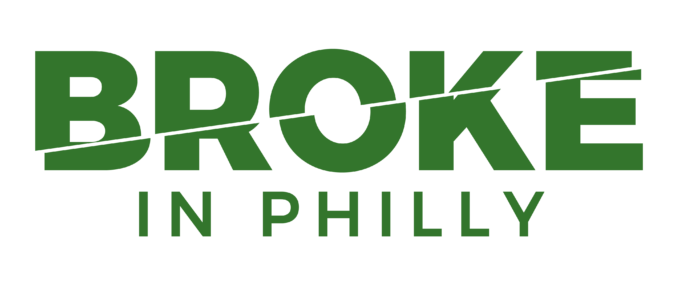
Metro is one of more than 20 news organizations producing Broke in Philly, a collaborative reporting project on economic mobility. Read more at brokeinphilly.org or follow on Twitter at @BrokeInPhilly.




